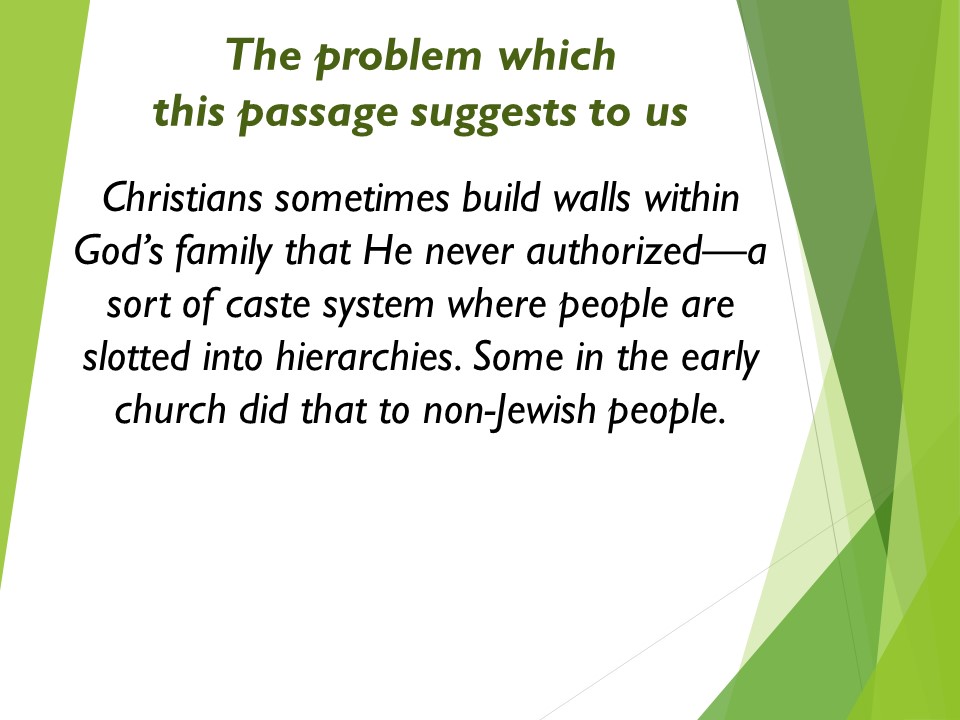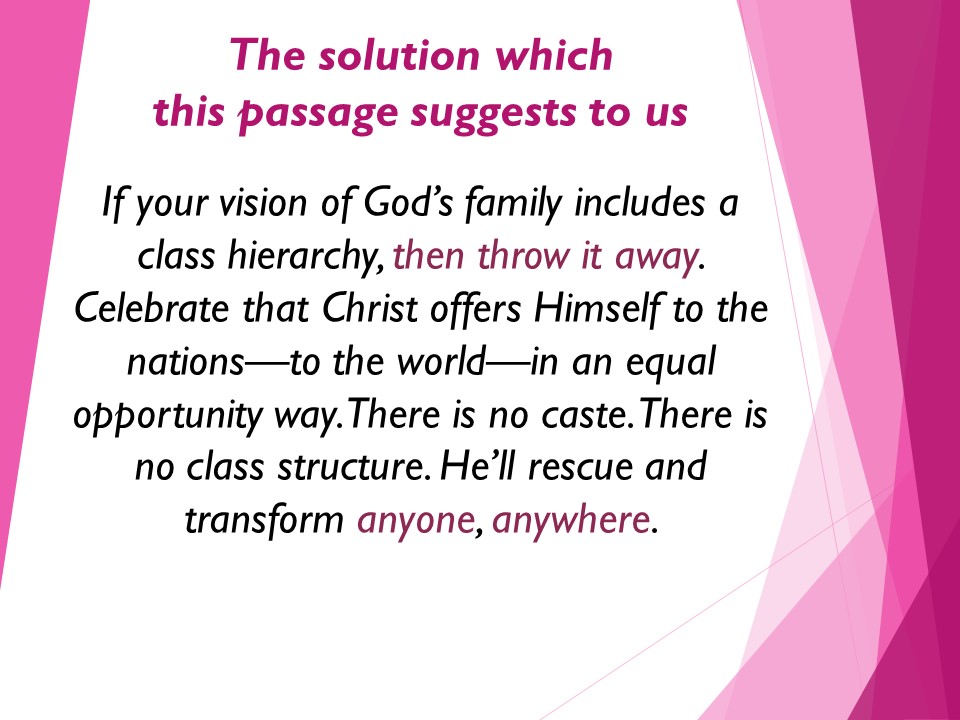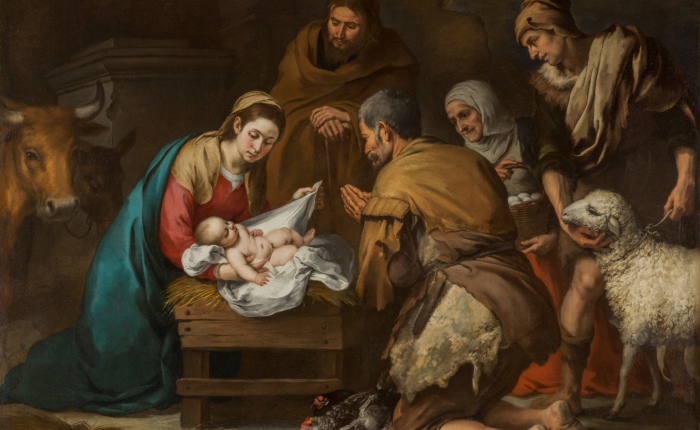This article is part of a commentary series through the Book of Galatians. This article covers Galatians 6:11-18. You can find the rest of the series (so far) here: Galatians 3:1-6, and Galatians 3:7-14, and Galatians 3:15-22, and Galatians 3:23 – 4:7, and Galatians 4:12-20, and Galatians 4:21 – 5:12, Galatians 5:13-26, and Galatians 6:1-10.
Paul now presses a few reminders and offers his assessment of the Judaizer’s motives. This is really a postscript; a closing line or two summing up the matter and issuing a broadside or two against his opponents. What’s quite clear is Paul’s genuine worry about the Christians in Galatia. The situation is so dire—believing in a false version of the “gospel”—that Paul is compelled to once more speak very plainly to press home his remarks.
See what large letters I use as I write to you with my own hand!
Galatians 6:11
Paul often uses a secretary to transcribe his letters (cf. Rom 16:22). But here, at the end of this unpleasant but necessary communique, Paul takes the pen from his secretary’s hand and writes the last bit himself. The Christians in Galatia who handled the letter would immediately see the different handwriting and hopefully be touched by the gesture.[1] In a letter with contains so many stern rebukes, a loving and personal touch like this is a nice gesture.
Paul reveals that this isn’t an honest dispute between two parties who have a theological disagreement.
Those who want to impress people by means of the flesh are trying to compel you to be circumcised. The only reason they do this is to avoid being persecuted for the cross of Christ.
Galatians 6:12
The Judaizers are pushing for “converts” in order to avoid persecution. Paul says this is the “only” reason they’re doing what they’re doing.[2] We don’t know the precise situation. Many believe the Judaizers fear persecution from the larger Jewish community—and that may well be the issue.[3] Another possibility is that they fear local Roman authorities who may have little patience for what they perceive to be an exclusivist cult.[4] Here is a sketch of the situation to help us figure out the battlespace.[5]
First, the Roman Empire was a syncretistic society.
All sorts of religions flourished and were tolerated to some degree. All that was asked in return by Jesus’ day was a sort of mega-pluralism—a respect and homage to the cult of the emperor.
Second, the Jews were generally not loved but tolerated. Yes, they had their invisible God who couldn’t be represented by images or idols, and they had a fanaticism about their God being the “only one.” Yes, it was weird and exclusivist. But, for all that, Jews were a known quantity. They were understood, acknowledged, and tolerated within limits. They’d carved out a precarious place for themselves in the Roman world.[6]
Third, the Christians were a different story.
At first, the Romans saw them as a Jewish cult and so “the Way” initially had some measure of quasi-legitimacy. But the movement was rapidly being recognized as a “new thing.” This “new thing” got no love from the Roman authorities, who didn’t know or understand what it was about. A new, exclusivist cult that pronounced that this man Jesus was the true king? A martyr whose death was stirring unrest in various places throughout the Mediterranean basin? This was trouble.
It makes sense that anxious Jews who were attracted to Christianity might seek shelter from potential Roman persecution by hiding under a Jewish umbrella—hence the very Jewish flavor of their “gospel.” However, as Jewish unrest grew in Judea from the mid-50s AD onward culminating in the revolt of 66-70, the wisdom of aligning oneself with that party would be increasingly open to question.
On the other hand, fourthly, the Christian movement was also the target of repeated Israelite attacks, most infamously at the very hands of the apostle Paul!
The apostle’s later persecution by and incessant trouble with outraged Jews throughout the Mediterranean proves the depth of hostility that Christianity provoked in their community. This reaction operated on two levels. On the one hand were the theological conservatives, characterized by the Pharisee party among the Sanhedrin, who believed Christianity was leading good Jews into apostasy. Christians were therefore dangerous and subversive heretics who must be stopped—now. On the other hand, we have the more populist reactions from officials and laypeople in the provincial synagogues—the people from whom Paul encountered such opposition during his missionary travels.
Either way, the Jews saw “the Way” as a heretical cult and Judaism had a long tradition of bringing a sledgehammer to a fistfight when stirred to action and fueled by religious fervor. Phineas was celebrated for killing an Israelite as the blackguard cavorted with a Moabite prostitute (Num 25:1-13). Centuries later, Mattathias struck down a fellow Israelite who offered pagan sacrifice in obedience to the Seleucid king, thereby sparking the Maccabean Rebellion (1 Macc 2:15f).
Ironically, Paul himself was later this same group’s arch-foe. Paul spoke movingly about the persecutions he suffered (Gal 5:11), and the Book of Acts is all the testimony one needs to see that his main foe were the pious Jews who thought they were doing the Lord’s work by taking Paul off the board. To quote Joseph Stalin, “Death solves all problems. No man, no problem!” (cf. Jn 11:49-50). Indeed, it was enraged Jews whose hysterical reaction at seeing their nemesis in the flesh resulted in Paul’s arrest (Acts 21:27f). They then engineered more than one hare-brained plot to kill him while he remained in Roman custody—a conspiracy involving no less than certain key members of the Sanhedrin and perhaps 40 fanatics who pledged to not eat or drink until Paul was slain (Acts 23:12-15; 25:1-3).
Fifth, in between Paul and full-blown Judaism were the Jewish-flavored Christians, represented by the hardliners in the Jerusalem congregation who were always suspicious of Paul (Acts 23:17-24) and very uneasy with Peter’s forays into Gentile evangelism (Acts 11:1-18).
It was this party that pressured Peter, whom they always considered “their man,” to stop fraternizing with Gentiles (Gal 2:11f). It was these same people that sent emissaries out to Antioch to pressure the new believers there to add “obedience to Moses’ law” as a condition of salvation (Acts 15:1-4). It was the Jerusalem community which had earlier sent Barnabas to Antioch after hearing word that a large group of Gentiles had converted and joined the church there (Acts 11:22). Barnabas was likely on orders to “scout out” the situation, not because the Jerusalem leaders were overjoyed about new converts, but because these new believers were Gentiles.
The Book of Acts depicts James as trying to desperately hold the Gentile and Jewish constituencies together in the Jerusalem congregation; even securing a concession from Paul to placate the hardliners in their midst (Acts 21:22-24). Much earlier, this same congregation struggled with hostility among both the Jewish hardline and the more “worldly” widows among them (Acts 6:1). Not unlike the way regional prejudices colored the practical outworking of the Gospel in the Jim Crow south, these Jewish Christians were officially “fine” but functionally very uneasy with full Gentile participation in the Jesus community. It is people from this group who are the Judaizers stirring up trouble among the Galatian congregations.
So, sixthly, the Christians found themselves in a difficult spot by the mid-50s AD.
Despised by the Jews as an apostate cult on the one hand, whilst on the other they were scrutinized with increasingly furrowed brows by local Roman authorities of varying competence and quality. Pilate himself was a mid-level civil servant of modest abilities whose weakness was obvious to the wily Annas and his son-in-law, Caiaphas.
The question now is—what do these Judaizers fear the most? Do they fear persecution from provincial Roman authorities, or from increasingly fundamentalist Jewish (non-Christian) hardliners? On balance, the evidence favors the second option. The gossip is that Paul (and, by extension, his converts) lead Jews away from the Torah and convince them to forsake Jewish customs (Acts 21:21). This is kinda true, though not for the reasons they think. But nuance has never been sexy. In every age, those who shout the loudest have a remarkable ability to carry a larger, more passive bloc along with them. This is why a few partisans could whip a crowd into a frenzy when they spotted Paul in the temple courtyard (Acts 21:27-28).
And so the more Jewish-oriented Christians who “were not bold enough to defy the prejudices of their unconverted fellow-countrymen”[7] sought cover from the Jewish hardliners.
The rival mission considered Paul’s activity as a threat to the larger group (the Jewish people), which had to be preserved. These teachers were also acutely aware that apostates could be persecuted by the zealous (as Paul himself had done prior to his conversion; Gal 1:13-14, 23). It would have been in everyone’s best interests, they would have thought, to make it clear to both non-Christian and Christian Jews that the Jesus movement was in no way a movement that promoted apostasy.
By reinforcing Jewish (Christian) adherence to the Torah, and all the more by bringing Gentiles to the light of the law, the rival teachers could save themselves, the church in Judea, and the churches in the Diaspora where Jewish communities were strong, from the intramural persecution that perceived apostasy could invite.[8]
If you’re a Jewish person who is attracted to Christianity (for whatever reason), what is one way to (a) escape the wrath of the Jewish fundamentalist hardliners who have hounded Paul from one end of the eastern Mediterranean to the other, and (b) still retain Jesus-ish teachings? One possibility is to combine Judaism with Jesus. First, you emphasize the fraudulent heritage of works righteousness to which the true Old Covenant religion had degenerated—the rally-cry[9] of Acts 15:1; “Unless you are circumcised, according to the custom taught by Moses, you cannot be saved!” This is the tradition which Paul earlier labeled “a different gospel” (Gal 1:6). Second, you just add “Jesus as Messiah” into the mix. Be a good Jew … and believe Jesus is the Messiah, then keep doing both.
This is a desperate tertium quid—a “third thing” that will likely please nobody. But, by hiding under the Old Covenant cloak, these Judaizers hope to “avoid being persecuted for the cross of Christ,” (Gal 6:12). They fear the stigma of identifying themselves with Jesus, His message, and all this implies.[10] This means “the cross of Christ” has some hold on them, which suggests (a) they either are professing Christians already, or (b) they’re intrigued enough by the Christian story to be tagged as being Christians—which is essentially the same thing in the eyes of suspicious Jewish communities at home and abroad. Either way, the Jewish emphasis of their teaching—the entire point at issue in Paul’s letter—is to some extent a front.
Perhaps some would think it presumptuous of Paul to say this—has he become a mind reader? How does he know what their motives really are? But, the fact is that Paul is the most experienced missionary in the Christian community. He has experience. He knows the ground. He knows the players. He knows the motives. He speaks with the sure confidence of a man who knows his job very, very well. It’s the same kind of experience that enables a professional in any field to hear the bare facts of a situation and then pronounce an opinion that seems clairvoyant and telepathic—especially when it’s proven right.
“How did you know that!” we ask. Experience, that’s how.
Not even those who are circumcised keep the law, yet they want you to be circumcised that they may boast about your circumcision in the flesh.
Galatians 6:13
Nobody can keep the law—not even the Judaizers. Yet, they want people to buy in on a system that had twisted the Old Covenant into a relationship with God based on good works. And why? So they could use them as cover for being “Jewish,” to escape the taint of being Christian. What a ridiculous situation! They claim the cross of Christ, yet spend all their time denigrating it—boasting about their convert’s circumcision—in order to escape suspicion by the local authorities![11] With “believers” like that, who needs enemies?
May I never boast except in the cross of our Lord Jesus Christ, through which the world has been crucified to me, and I to the world.
Galatians 6:14
Paul has a different focus. The world is dead to him. Babylon is dead to him. The harlot atop the beast, with all her charms and wiles and beauty, is dead to him (Rev 17). The world has been crucified to him. Of course, no mortal human is totally dead to the world, and Paul has told us about his own struggles to stay faithful to Jesus (Rom 7:7f). But, we get the idea. Paul has made the decision to follow Jesus and boast in “the cross,” to not knuckle under and look for some cover to shield himself from the Roman authorities. He crossed that bridge a long time ago and then burnt it behind him.[12]
The cross is the means or instrument which has brought about this new reality.[13] Paul is very fond of metaphysical language to describe spiritual realities (see Rom 6). In an unseen but extraordinarily real way, Christ’s death on a cross, His burial, and His resurrection have significance far beyond their physical implications for His own body. When we pledge allegiance to Jesus, we somehow participate, are amalgamated into, are united with Him and His death, burial, and resurrection—and nothing is ever the same.
Jesus is crucified → Our “old person” is crucified
Jesus dies → Our “old person” dies
Jesus is buried and gone → Our “old person” is buried and gone
Jesus raises from the dead to new life → We’re “born again” and have spiritual life
This isn’t typology—it’s real. This is why the cross is literally the instrument which crucifies Paul to the world, that makes it dead and gone to him. But this “crucifixion” goes both ways—it makes the world dead to him, and him dead to the world. The bridge has been taken out. There is no path back for either party—for Paul or the world. Neither can return. The die has been cast. Quite literally, Paul says, “we’re both dead to each other.”
A great sea change has happened, triggered by a divine encounter with Christ by way of the Holy Spirit. Reality has changed, life has changed—his mind and heart has changed. This is why Paul can never do what his opponents do—to boast in so-called “converts” as a cover to escape persecution. He can only boast in the cross of Christ because it’s what changed everything. For the Christian, it’s not simply an event we look back on with a sweet smile. It’s the engine which triggered an entirely new reality—the true and real reality.
Because of Jesus and the new and better relationship that comes along with the new and better covenant, Paul can sum up the whole matter with this:
Neither circumcision nor uncircumcision means anything; what counts is the new creation.
Galatians 6:15
This is the grand summary of the whole issue in this letter.[14] Are you a Christian? Have you had an encounter with Jesus via the Holy Spirit? Has the Lord opened your heart to understand the things of God? Has the Spirit lifted aside that Satanic veil so the Gospel can shine in (2 Cor 4:3f)? Have you been born again? Do you have spiritual life? These questions are all getting at the same idea—have you been made new in relationship with Jesus Christ?
… if anyone is in Christ, the new creation has come: The old has gone, the new is here! All this is from God, who reconciled us to himself through Christ and gave us the ministry of reconciliation: that God was reconciling the world to himself in Christ, not counting people’s sins against them. And he has committed to us the message of reconciliation. We are therefore Christ’s ambassadors, as though God were making his appeal through us. We implore you on Christ’s behalf: Be reconciled to God!
2 Corinthians 5:17-20
In Christ, we’re changed. Reconciliation triggers moral and spiritual renovation in our hearts and minds. The “ministry of reconciliation” of which Paul speaks is the good news that triggers this divine renovation. This is the Christian community’s mission, its ethos, its telos. We’re ambassadors who represent the new Jerusalem in kingdom outposts scattered hither and yon across rural and urban Babylon. We show and tell about Jesus so people would choose to be reconciled to God.
Against that mission, what exactly is circumcision? It’s nothing. The Judaizers want external rites to be the main thing, but they are not—it’s the new creation which is the first principle. “Political laws, human traditions, church ceremonies, and even the law of Moses are without Christ; therefore, they do not bring us righteousness before God. We may use them as things both good and necessary, in their place and time; but if we talk of the matter of justification, they do not help but harm very much.”[15]
The new creation is the issue, and it’s the only issue that matters. Circumcision, uncircumcision—it doesn’t matter. Legalists always focus on these things because it’s what they think God wants. They think relationship with God is about “doing the right things” (orthopraxy), and so they think it’s really important to identify the right things so we can all do them. Paul says no—all that’s pointless. It’s downstream of the first principle, which is “are you a new creation in relationship with Jesus?”
Who are the people who follow this rule? Who are the folks who really get that this “new creation” business is the hinge upon which everything turns?
Peace and mercy to all who follow this rule—to the Israel of God.
Galatians 6:16
True believers are the ones who understand all this—ones who aren’t defined by outmoded covenant markers, but by the inward love that comes from being a new creation in union with Christ. The “true” Israelites are the ones whose hearts are marked with God’s covenant sign (Rom 2:28-29)—who’ve been “branded” (as it were) by the Holy Spirit. The true child of Abraham is person (whether she be Jewish or whatever) who has the same faith and trust in God that Abraham displayed (Rom 4:16; cp. Gal 3:7). In union with Jesus Christ, we are all children of God through faith (Gal 3:26). Paul explained earlier that, “If you belong to Christ, then you are Abraham’s seed, and heirs according to the promise,” (Gal 3:29).
And by ‘the Israel of God’ he means without doubt the true Israel, those who are sons of God through faith in his Son, whether of Jewish or Gentile descent after the flesh.[16]
Some Christians believe Paul refers to two group; (a) Gentiles who follow the rule of “new creation or bust,” and (b) the Jewish folks who do likewise. This is grammatically possible, but contextually unlikely.[17] In this letter Paul simply isn’t concerned about a future for Israel—turn to Romans 9-11 if you want to see that discussion. In a context in which he’s combatting legalist Judaizer posers, the very last thing the apostle would do would be to toss out onto the table a reference to ethnic Israel as a bloc.[18] No—his focus here is on real believers, no matter who they are.
The “true circumcision,” Paul declared elsewhere, are “we who serve God by his Spirit, who boast in Christ Jesus, and who put no confidence in the flesh,” (Phil 3:3). When Jesus rescues us, He marks us with an invisible “circumcision” (so to speak) on our heart that declares us to be His (Col 2:11). This marker is a beacon saying that we’re now alive with Christ.
So, in that vein, the “true Israel” are those people (Jewish, Canadian, Azeri, Chilean, or whatever) who understand that the new creation is the only thing that matters for relationship with God, because it’s the only thing that establishes this relationship! [19]
From now on, let no one cause me trouble, for I bear on my body the marks of Jesus. The grace of our Lord Jesus Christ be with your spirit, brothers and sisters. Amen.
Galatians 6:17-28
Paul concludes with what one commentator called an “impatient grumpiness,”[20] but this seems a bit unfair. It more about exasperation, a dusting off the hands with an “I’m done with this!” sort of attitude. It’s not directed at the Judaizers, but at the Galatians believers.[21] “Forget those people,” he says. “Don’t cause me anymore trouble by letting them confuse you about the Gospel again. I’m done with them, and you should be, too!” Paul has suffered for Christ—literally suffered. He’s been beaten, left for dead, imprisoned, and bears real scars and real marks on his body that testify to his dedication for Christ.
Again, he asks, “what is ‘circumcision v. uncircumcision’ when compared to the love, forgiveness, and reconciliation that God offers through His dear Son?” In a 2023 American context, we might ask, “what is ‘Republican v. Democrat’ when compared to Christ?” If a local church puts any external rite, habit, tradition, or so-called “essential” in front of the Gospel, as a prerequisite, then run away. Fast.
The late pastor John Stott wrote this about the scandal of the cross of Christ:
Every time we look at the cross Christ seems to say to us, ‘I am here because of you. It is your sin I am bearing, your curse I am suffering, your debt I am paying, your death I am dying.’ Nothing in history or in the universe cuts us down to size like the cross. All of us have inflated views of ourselves, especially in self-righteousness, until we have visited a place called Calvary. It is there, at the foot of the cross, that we shrink to our true size.[22]
This is what Paul wanted the Galatians to see. It’s what he wants us all to see. I hope we do.
[1] For a representative analysis along this line which doesn’t attribute Paul’s “large letters” to poor eyesight, see Longenecker, Galatians, pp. 289-290. The old Scofield Reference Bible is representative of the tradition that sees great significance in Paul’s handwriting here: “But now, having no amanuensis at hand, but urged by the spiritual danger of his dear Galatians, he writes, we cannot know with what pain and difficulty, with his own hand, in the ‘large letters’ his darkened vision compelled him to use,” (Scofield Reference Bible (New York; London; Toronto; Melbourne; Bombay: Oxford University Press, 1917), Gal 6:11, p. 1248).
[2] The Greek is clear: μόνον ἵνα τῷ σταυρῷ τοῦ Χριστοῦ μὴ διώκωνται. The ἵνα + subjunctive, combined with the negation, tells us they are doing this for the purpose of escaping persecution. Paul clarifies that their sole motive (μόνον) is this objective.
Dunn (and others) suggest Paul is exaggerating the “only” part for rhetorical effect (Galatians, p. 336), but I disagree. I don’t believe we must suppose that the Judaizers quite literally had no other motive, thought, or quest in mind but using them as a cloak for persecution. But, Paul surely states this was the most important, controlling, dominating motive.
[3] On the theory that the Judaizers don’t so much fear the Romans, but sanctions from their own Jewish communities, see (1) Hendriksen, Galatians, pp. 242-243; (2) Ridderbos, Galatians, pp. 242-244; and (3) Barnes, Notes on Galatians, pp. 397-398. This is only a representative sample—most commentators take this view.
[4] Bengel observes that either option is possible; persecution might come “from the Jews, or even from the Gentiles, who now bore more easily with the antiquity [antiquated usages] of the Jews, than with the supernatural novelty [new doctrine and rule] of the Christian faith,” (Gnomen, p. 4.57).
[5] For a reliable survey of this period, see esp. Grant, Jews in the Roman World, parts III and IV. See also F.F. Bruce, New Testament History (reprint; New York: Doubleday, 1980), ch(s). 21-22.
[6] Michael Grant observed that it was “an emphatic principle of Roman rule that every community should, as far as possible, be allowed to maintain its national customs, including the worship of its own gods in its own way. Pagan cults, after all, tolerated one another; religious exclusiveness was regarded as weird. And so, paradoxically, the Roman authorities issued tolerant dispensations in favour of the intolerant Jewish God,” (Jews in the Roman World (London: Weidenfeld & Nicholson, 1973; Kindle ed.), p. 60).
[7] Lightfoot, Galatians, p. 302.
[8] David deSilva, An Introduction to the New Testament: Contexts, Methods and Ministry Formation, 2nd ed. (Downers Grove: InterVarsity Press, 2018), p. 436.
[9] Stott, Galatians, p. 176.
[10] Dunn, Galatians, in Black’s New Testament Commentary (London: Continuum, 1993), p. 336f.
[11] John Calvin remarks, “It is the usual practice of ambitious men meanly to fawn on those from whose favour they hope to derive advantage, and to insinuate themselves into their good graces, that, when better men have been displaced, they may enjoy the undivided power,” (Galatians and Ephesians, p. 182).
[12] “What Paul means is that every rationale for individual and corporate existence which is independent of God (as in Rom. 1:21–2), together with its system of beliefs and values and corresponding life-style, has been condemned and put to death so far as he is concerned; and that he himself has likewise been rendered inoperative so far as the attractions of such rationales, belief and value systems and life-styles are concerned,” (Dunn, Galatians, pp. 340-341).
[13] In the phrase διʼ οὗ ἐμοὶ κόσμος ἐσταύρωται κἀγὼ κόσμῳ, the preposition expresses means, and the relative pronoun refers back to the cross(τῷ σταυρῷ τοῦ κυρίου ἡμῶν Ἰησοῦ Χριστοῦ) and not to Jesus.The pronoun ἐμοὶ is a dative of reference, expressing that the world has been crucified in reference to him or so far as he is concerned. Not only that, but Paul adds that “I have been crucified with reference to the world” (κἀγὼ κόσμῳ).
[14] Longenecker, Galatians, p. 296. “… Paul uses it to climax all of his arguments and exhortations in 1:6 – 5:12 with respect to the Judaizing threat.”
[15] Luther, Galatians, p. 301.
[16] Hovey, Galatians, in American Commentary, p. 78. Lightfoot observes, “It stands here not for the faithful converts from the circumcision alone, but for the spiritual Israel generally, the whole body of believers whether Jew or Gentile; and thus kai is epexegetic, i.e. it introduces the same thing under a new aspect …” (Galatians, p. 305).
[17] See esp. Hendriksen, Galatians, pp. 246-247.
[18] Longenecker is especially on the mark here (Galatians, p. 298).
[19] In the phrase καὶ ἐπὶ τὸν Ἰσραὴλ τοῦ θεοῦ, the conjunction is ascensive and hones in on the “them” and explains who they are. It’s essentially appositional. The genitive in Ἰσραὴλ τοῦ θεοῦ is subjective—God’s Israel, which basically means “God’s people.” This suggests it could be a possessive genitive, but that usage is generally for personal property, not people in a relationship. We have a translation conundrum here, because the true force of “Israel” in this context is to emphasize the “real believers.” A more colloquial rendering (and perhaps a more accurate one) would be something like “… peace and mercy to them—the true believers.”
On my interpretation of “Israel of God,” see (1) Alford, New Testament, p. 2.360; (2) DeSilva, Galatians: A Handbook on the Greek Text, p. 145, (3) Stott, Galatians, in BST, p. 180, (4) esp. Schreiner, Galatians, p. 381f, (5) Luther, Galatians, p. 303, and (6) the NLT, RSV, NIV, REB. For a contrary view which sees two groups (Gentiles + Jews), see Fung, Galatians, in NICNT, loc. 3730f.
[20] Dunn, Galatians, p. 346.
[21] See Fung, Galatians, loc. 3771.
[22] Stott, Galatians, p. 179.


















